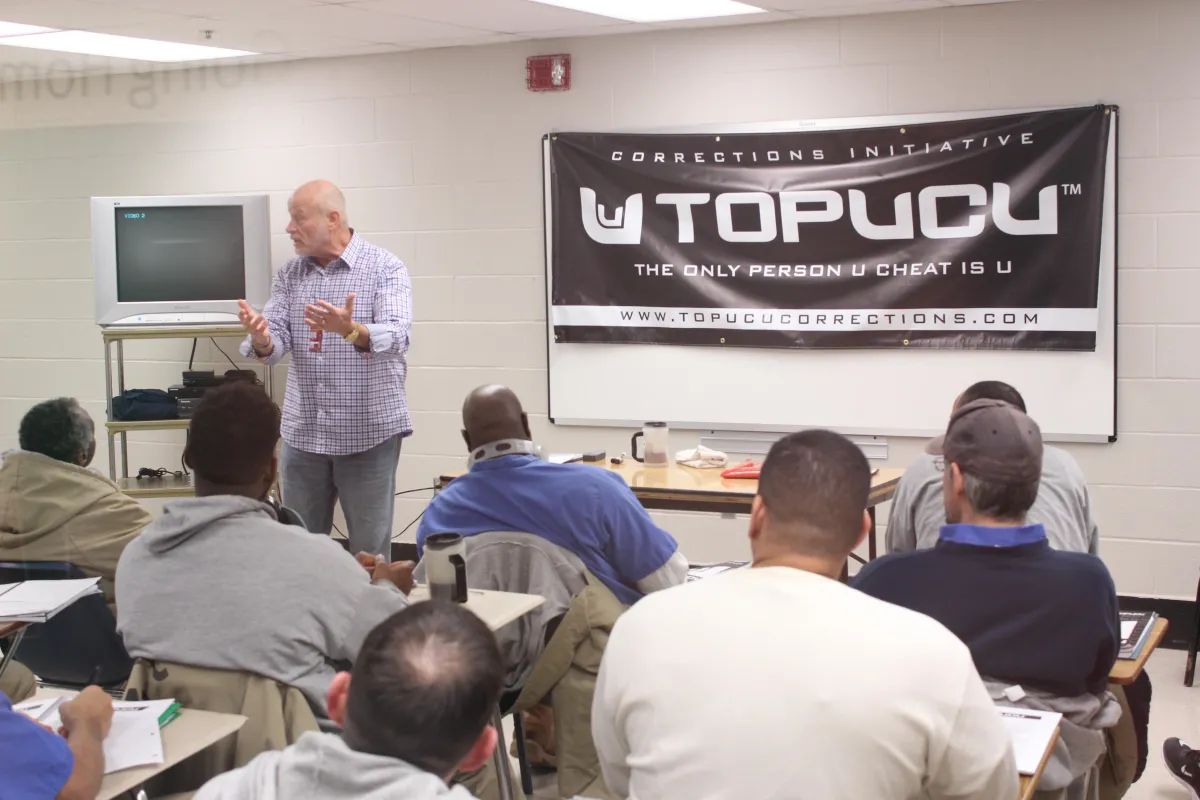
For Incarcerated Learners
A Clear Path Forward for Justice-Impacted Individuals
TOPUCU has made a lasting impact in correctional facilities nationwide. The program has been adopted across various state prison systems, county & parish jails, and local facilities—bringing meaningful change wherever it is implemented. At its core, TOPUCU equips incarcerated individuals with practical tools to build better habits, take accountability, and prepare for a successful reentry into society.



Flexible Delivery for Every Environment
To meet the diverse needs of correctional facilities, TOPUCU is available in both in-person and tablet-based formats. This ensures the program can be delivered effectively in large state institutions, smaller local jails, and everything in between.
Through partnerships with leading providers—including Orijin, Edovo, Securus, Maxx Content, and Viapath—TOPUCU is accessible nationwide. On the Edovo platform alone, the program is available to over 1,100 facilities, giving thousands of incarcerated learners the chance to transform their mindset and future.
Addressing Criminogenic Needs & Social-Emotional Learning
Rather than focusing only on surface-level behavior change, TOPUCU addresses the root causes of criminal behavior—such as low self-control, antisocial tendencies, and barriers to education and employment—through a research-validated evidence-informed, individualized approach.
TOPUCU integrates Social-Emotional Learning (SEL) principles to help participants build emotional intelligence, strengthen relationships, and make responsible decisions. By addressing both criminogenic needs and emotional development, the program promotes meaningful behavioral change and long-term success.
How TOPUCU Targets Key Criminogenic Needs:
Low Self-Control
Lessons 1 and 4 develop self-discipline and the habits needed to manage impulsive behavior.
Antisocial Personality & Behavior
Lesson 4 teaches participants to identify and challenge negative thinking patterns, encouraging pro-social attitudes and constructive interactions.
Substance Abuse Support
While not a formal addiction recovery program, Lesson 3 equips participants with healthy coping strategies, helping those in recovery maintain positive habits and manage stress effectively.
Employment Readiness
Time management, goal-setting, and communication skills are taught throughout the program, aligning with workforce reentry needs and enhancing employability.

Decrease in recidivism when 4-6 Criminogenic Needs are addressed.
(Gendreau, 2002)

More effective in reducing prison misconduct instances compared to non-CN programs.
(Latessa, 2011)

Increase in post-release employment after completion of programming
(Davis et al., 2013)

increases
Self-awareness, social awareness, responsible decision-making, self-management, relationship skills, employment rates, and average wages. By focusing on habit formation, values, cognitive growth, commitment to change, and addressing environmental factors, TOPUCU not only reduces criminal behavior but also empowers individuals to reenter society with confidence, purpose, and the tools to build a better future.

decreases
Mental health challenges, behavioral issues, substance use, recidivism, and criminal activity by helping individuals identify and overcome obstacles. The program supports breaking ties with negative influences and reducing reliance on criminal peers, fostering healthier choices and long-term change.






